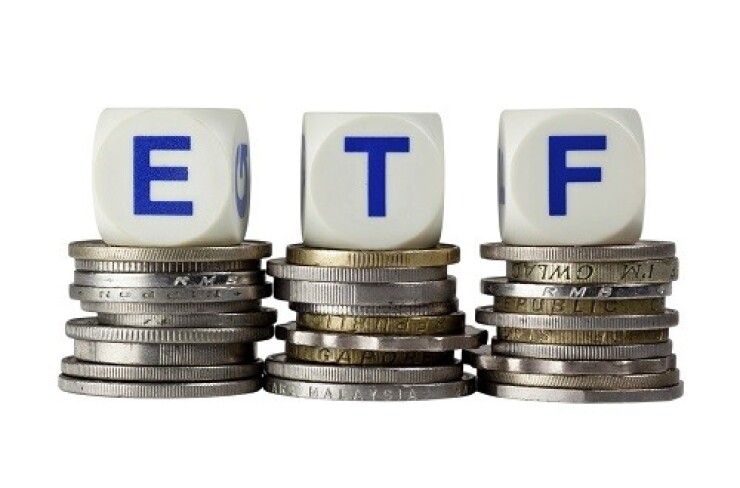For the more than 1,200 financial advisors that rely on
Advyzon, a firm that provides cloud-based technology to financial advisors and investment managers, has released research that analyzes how advisors have invested client funds over the past five years.

In particular, the
Some of the key takeaways include the amount of money poured into alternative investments climbing more than 400% compared to previous years; advisors pulling money out of equities; cash equivalents and individual bonds benefiting from higher yields; and ETFs overtaking mutual funds as the top investment vehicle for financial advisors.
That final takeaway is one that
Last year, Huckstep predicted mutual fund and ETF exposures to be close to parity by the end of 2022. And while investments in ETFs remained steady at roughly 28%, the amount of money invested in mutual funds dropped to 24% at the end of last year from 30% at the close of 2021.
READ MORE:
"It started when State Street launched SPY as the first ETF in the U.S.," Huckstep said, referring to the SPDR S&P 500 ETF. "From the start, the tax benefits, liquidity and relatively low cost made ETFs attractive to investors."
By the end of 2022, advisors had 53.7% of client assets in stocks, 20.3% in bonds, 0.6% in commodities, 2.7% in alternative investments, 6.7% in cash and 16.1% in other assets, according to the Advyzon study.
The prior year, advisors held 60.1% in stocks, 20.3% in bonds, 0.5% in commodities, 0.6% in alternatives, 9.5% in cash and 9.0% in other investments.
"In all the years Advyzon has been reporting firms' asset allocations, alternative investments have never made up even 1% of total allocations. The highest allocation came in 2015 at 0.78%," Advyzon Product Manager Kelly Fitzpatrick writes in the introduction of the white paper. "So while the nearly 3% we saw allocated to alternative investments in 2022 may seem like a small allocation overall, and it is, it represents a threefold increase in advisor interest in alts."
Lackluster stock market performance only explains about half of the decline in equity allocations last year, Huckstep said. He argued that higher yield on cash equivalent products may be driving some of the shift toward "other investments" and the dip in cash allocations.
Certain cash equivalents, including certificates of deposit, can be classified based on advisor discretion. Alternatives that are not easily classified as such may also fall intothe "other" category.

"The availability of alternatives is far greater than ever before, from hedge-fund-like mutual funds to ETFs and the advent of interval funds," said Shana Sissel, CEO of the Glenview, Illinois-based
Advyzon examined how assets were allocated across all firms that run their data directly through Advyzon's platform rather than relying on self-reporting by the advisors.
Advisors and investors are increasingly turning to ETFs to get exposure to a wide range of investment styles, according to Todd Rosenbluth, an ETF expert and
"Relative to mutual funds, ETFs tend to be less expensive, more tax efficient and provide more liquidity," Rosenbluth said.

READ MORE:
Advyzon also saw a small decline in stock-picking in 2022. Advisors held fewer individual stocks —22.4% of assets at the end of the year — than in 2021 when the number was 23.5%.
However, more advisors invested in individual bonds. Advisors invested roughly 9% of client assets directly in fixed-income issuances at the end of the year, up from about 5% the previous year.
The analysis suggested it is possible that advisors were trying to capture higher yield for clients without risking the price drop that comes with total return bond funds. Morningstar data mirrored this finding in the broader market, with $483 billion flowing out of fixed-income funds in 2022, according to
Advyzon also gathered data for the first quarter of 2023 to assess how trends were evolving in the new year.
"So far, we've seen some of the enthusiasm for cash and cash equivalents decrease as yields on short-term investments fall. However, the still-inverted yield curve (as of July 2023) could mean cash allocations will hold steadily higher in the short term," said the Advyzon team in the blog post. "Given the rebound in equities this year, it's likely we'll see changes in those allocations, too.






